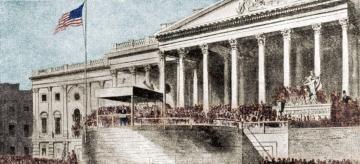Search 174 results
- Remove filter: Contemporary History
- Remove filter: Economics
Filter by
Events
Series
Contemporary History Post-1945: China
Grade Level
High School
- Students will learn how China’s transformation from a state of economic and political collapse to its rise as a global power shapes the motivations of its leaders today.
- Students will be able to analyze the key policies of the Chinese Communist Party (CCP)
Trade: Policy
Grade Level
High School
- Students will analyze how trade can be used as part of foreign policy.
- Students will simulate trading under different kinds of trade rules and then reflect on the advantages and disadvantages of each set of rules.
Trade: Introduction
Grade Level
High School
- Students will examine free trade and how globalization factors into the production of common items like clothing.
- Students will write a letter providing a recommendation on where to manufacture an item along with the reasons behind their argument.
Monetary Policy: Economic Statecraft
Grade Level
High School
- Students will debate the use of various economic tools as part of achieving foreign policy goals in hypothetical situations.
Trade: Trade Wars and China
Grade Level
High School
- Students will understand what a trade deficit is as well as the impact they can have on countries.
- Students will debate the pros and cons of trade between the U.S. and China using the history of Chinese accession in the WTO as a lens.
Contemporary History Pre-1900: Introduction
Grade Level
High School
- Students will understand that developments in public health have had profound effects on life today.
- Students will understand how the development of modern states has led to greater peace and stability.
LEH100: Freshman Seminar - Global Issues
Grade Level
College
This freshman seminar course will prepare students to learn, think about, and analyze a wide range of global issues taking place in today’s world.
GLS 200: Introduction to Global Issues
Grade Level
College
This course’s syllabus is designed to introduce students to various points of view on contemporary international issues.

U.S. History Mini Simulations
In this series of historical mini simulations, students step into the shoes of policymakers to advise the U.S. president on how to respond to major foreign policy moments in U.S. history.

The Globalization Myth: Why Regions Matter
In The Globalization Myth: Why Regions Matter, CFR Vice President, Deputy Director of Studies, and Nelson and David Rockefeller Senior Fellow for Latin America Studies Shannon K. O'Neil offers a powerful case for why regionalization, not globalization, has been the biggest economic trend of the last forty years.